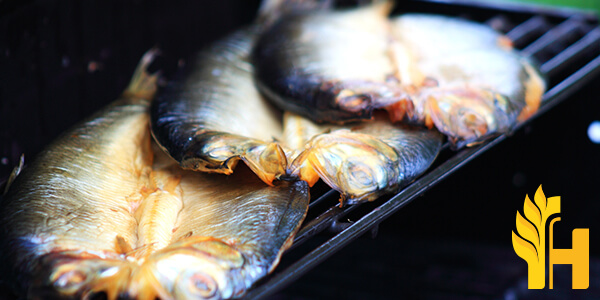Kipper price

Where to buy and sell Kipper, lowest (cheapest) and highest price.
check offers buy sell KipperToday price for KipperKipper wholesale prices 2022
The Current commodity price of Kipper per kg, pound in the world in the global markets
Kipper
A kipper is a whole herring, a small, oily fish, that has been split in a butterfly fashion from tail to head along the dorsal ridge, gutted, salted or pickled, and cold-smoked over smoldering wood chips (typically oak). The kipper method of processing herring has become such a widespread technique that much other fish are now also cured using this method. These include arctic char, salmon, trout, and ocean perch. The process is very simple and can be applied to a herring fillet, which will then only remain in the brine for about one hour before it is placed in front of a heat source. Certainly, there are various types of kipper smokers available from many manufacturers that incorporate temperature controls for different results or smoking time requirements. However, the traditional method does not rely on temperature control. The 'traditional' smoking time for a kipper is overnight. For example, kippers are hung on rods in front of smoldering woodchips or sawdust in an old barrel or shed for up to 12 hours. The kipper slowly absorbs smoke and moisture while losing about a third of its original weight, resulting in a mildly smoked, subtly salty fish. In the case of a herring or mackerel fillet, it will take about 60 minutes before it is ready to eat. In the traditional method, it is left out overnight and then eaten cold from the fridge, but since it doesn't contain much salt most people prefer to heat it. The kipper method of processing herring has become such a widespread technique that much other fish are now also cured using this method. These include arctic char, salmon, trout, and ocean perch. Kippers, an iconic British breakfast dish consisting of herring that has been cured via kippering—split open, cleaned, salted, and smoked—and then usually grilled, broiled, or sautéed. Kippers are often enjoyed with butter and lemon and occasionally a poached egg. The dish is sometimes served with tea or at dinner. Kippers are often enjoyed with butter and lemon and occasionally a poached egg. The dish is sometimes served with tea or at dinner.Global kipper production
Kippers are a type of smoked herring, typically prepared by splitting the fish open along its backbone, gutting it, and then curing it with salt. The kipper process was invented in the early 19th century as a way to preserve herring for longer periods of time. Today, kippers are still commonly consumed in many parts of the world, particularly in the United Kingdom and Scandinavia. Kipper is a type of dried fish, usually herring, that has been gutted and split open, then salted and smoked. It is an important part of the traditional diet in many countries, including Germany, Sweden, and the Netherlands. Kipper production is a relatively simple process. First, the fish are cleaned and gutted. Then, they are split open and salted. Next, they are placed in a smoking chamber where they are exposed to smoke from burning wood chips or sawdust. The final step is to package the kippers for sale. Kippers have a long shelf life and can be stored for months or even years. When stored properly, they will retain their flavor and texture. Global production of kippers has been declining steadily over the past few years. In 2010, only 18,000 metric tons were produced worldwide, down from a peak of 30,000 metric tons in 2000. The vast majority of kipper production takes place in the United Kingdom, where around 95% of all kippers consumed are produced. Other major producers include Norway, Iceland, and the Faroe Islands. The decline in kipper production is largely due to changing consumer preferences. In recent years, consumers have been increasingly choosing other breakfast options such as cereal, toast, and yogurt. Kippers are also relatively high in fat and cholesterol, which has led to some health-conscious consumers avoiding them. Additionally, the strong fishy smell of kippers can be off-putting to some people. Despite the decline in production, kippers remain a popular breakfast food in many parts of the world, particularly in the UK. Kippers are typically served grilled or smoked, and often with eggs, toast, and butter. They can also be used in other recipes, such as kipper pâté or kipper fishcakes.Download our new
Husfarm App
Stay up to date with the current prieces of agricultural products all over the world.
Do you want to sell agricultural products?
Are you an Agricultural processor looking for high-quality products to buy?
Post an ad for FREE!
